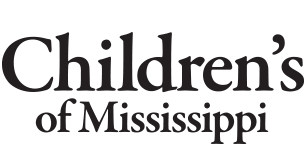Children's Heart
Children's Heart Center Program Highlights
Fetal cardiology
Fetal cardiac evaluation, including fetal echocardiogram consultation with a fetal cardiologist, and counseling are available at the UMMC Center for Maternal and Fetal Care. After birth, newborns who require specialized heart care are then seen at the Children’s Heart Center.
Pediatric to adult transition
The pediatric cardiology team at Children’s Heart Center works closely with the UMMC adult congenital heart disease (ACHD) program to identify young adults who are ready to transition to adult-focused care. While some adolescents may continue to be seen by their pediatric cardiologist, others may have different medical issues making their care more appropriate for an adult cardiologist. A team of specialists, called the transition team, determines the best approach for care.
Once care has been established with an adult cardiologist, follow up continues with routine tests and screening for heart diseases common in adults. The goal is to help these young adults navigate the adult health care world while addressing their specific heart needs.
Interstage home monitoring program for patients with Hypoplastic Left Heart Syndrome
Children’s Heart Center is one of 68 sites in the United States and Canada currently participating in the National Pediatric Cardiology – Quality Improvement Collaborative. The collaborative aims to improve outcomes for infants with hypoplastic left heart syndrome during the interstage period, between discharge from the initial open heart surgery and admission for a bidirectional Glenn procedure.
As part of the collaborative, our team offers a home monitoring program for infants with this condition. Close monitoring between surgeries reveals subtle changes in a patient’s condition, enabling appropriate and immediate intervention, and decreasing the incidence of sudden death in this very fragile population of infants.
Percutaneous pulmonary valve replacement
Percutaneous pulmonary valve replacement is a nonsurgical treatment for children with pulmonary valve dysfunction as a result of stenosis or regurgitation. The goal of replacement is to extend the function of the valve and reduce the total number of open-heart surgeries required over a patient’s lifetime.
There are currently two types of valves available for percutaneous pulmonary valve replacement in children. Each valve is suitable for a different type of patient. Unlike most heart centers that offer only one, if any, of the two available options, the Children’s Heart Center offers both. Additionally, our interventional cardiologist, Makram Ebeid, MD, is a proctor for one of the valves, and travels across the country teaching physicians how to perform the procedure.
Percutaneous closure of ventricular septal defects (VSD)
Children’s Heart Center performs percutaneous closure for two kinds of ventricular septal defects (VSDs): muscular and perimembranous. Few centers offer percutaneous closure of even one kind of VSD. This cardiac cath lab treatment helps appropriately selected patients avoid open heart surgery.
Our work surrounding these procedures has been published in The American Journal of Cardiology. Frequently, major children’s heart centers call our team for input about patient choice and technical advice to successfully perform the procedure.



 UMMC
UMMC